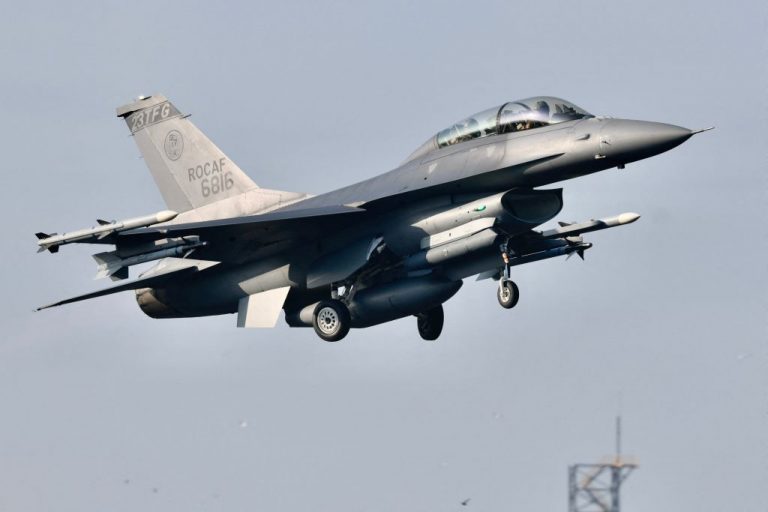Taiwan’s government has issued a warning to Beijing after the communist regime insisted that its incursions into Taiwan’s airspace are justified actions to ensure peace and stability.
High-level military tensions
In a statement made last week, Taiwan’s Defense Minister Chiu Kuo-cheng said the tensions between the People’s Liberation Army (PLA) and the ROC’s own military are the worst they’ve been in forty years. He insisted that Taipei would not start a war but is prepared to defend itself.
After the end of the Chinese Civil War in 1949, Taiwan or the Republic of China (ROC) separated from the mainland. The two sides are technically still at war with each other. It is feared that the communist army will launch a full-scale invasion by 2025.
The Defense Minister’s statements came after the PLA launched a series of aerial incursions into Taiwan’s air defense identification zone (ADIZ) for four straight days starting Oct. 1. The increased intensity of the communist regime’s military movements was seen as a “stepped up military harassment” by the CCP.
The PLA has continued to send fighter planes into Taiwan’s ADIZ multiple times throughout 2021 alone. The threats have prompted air-to-air defense systems and jets to prepare for any potential strike.
Success
You are now signed up for our newsletter
Success
Check your email to complete sign up
As the Chinese Communist Party (CCP) continues to apply military pressure on Taiwan, the latter’s allies have shown support with negotiations and naval operations in the South China Sea.
The Wall Street Journal reported that the U.S. has been sending special forces to train Taiwan’s military personnel. Other nations have also increased their defensive power across the South China Sea to challenge Beijing’s claims of territory. Japan’s newly-elected Prime Minister, Fumio Kishida, has opened up more cooperation between Tokyo and Taipei.
While the guns are still silent, Taiwan’s defense ministry will follow the principle of “the closer they are to the island, the stronger the countermeasures.” The ministry has expressed concerns about Beijing’s military advancements. Aircraft carriers, nuclear-powered submarines, and amphibious assault ships have been prepared for deployment.
The ministry also shared its concerns regarding the PLA’s ability to blockade the Taiwan Strait, which would “pose serious challenges and threats to our defense operations.”
Beijing’s blame game
Beijing has defended its military activities as a “‘just’ move to protect peace and stability.” It accused Taipei of “colluding” with other countries, particularly the United States.
The communist government claimed that the military movements were to protect the mainland’s “sovereignty and territorial integrity” and peace within the Taiwan Strait against “collusion” and separatist movements within the area.
Ma Xiaoguang, the spokesman for China’s Taiwan Affairs Office, repeatedly blamed Taiwan and the U.S. for causing tensions in the first place.
“They are absolutely just actions,” he said. “The DPP (Democratic Progressive Party) authorities’ hyping of the so-called ‘military threat’ of the mainland is to completely invert right and wrong, and a bogus accusation.”
“If the DPP authorities obstinately persist in going about things the wrong way, and do not know how to draw back from the edge, it will only push Taiwan into a more dangerous situation,” he added.
Despite the comments, CCP President Xi Jinping and ROC President Tsai Ing-wen made peaceful assurances. However, it has not stopped Xi from openly declaring his intentions to take full control of the island.
However, Tsai maintains a stance against any possible military strike from the mainland. She assured the public that the ROC has worked tirelessly to defend the island without provoking the communist giant.
“I also want to repeat that we will never succumb to pressure,” Tsai added.














